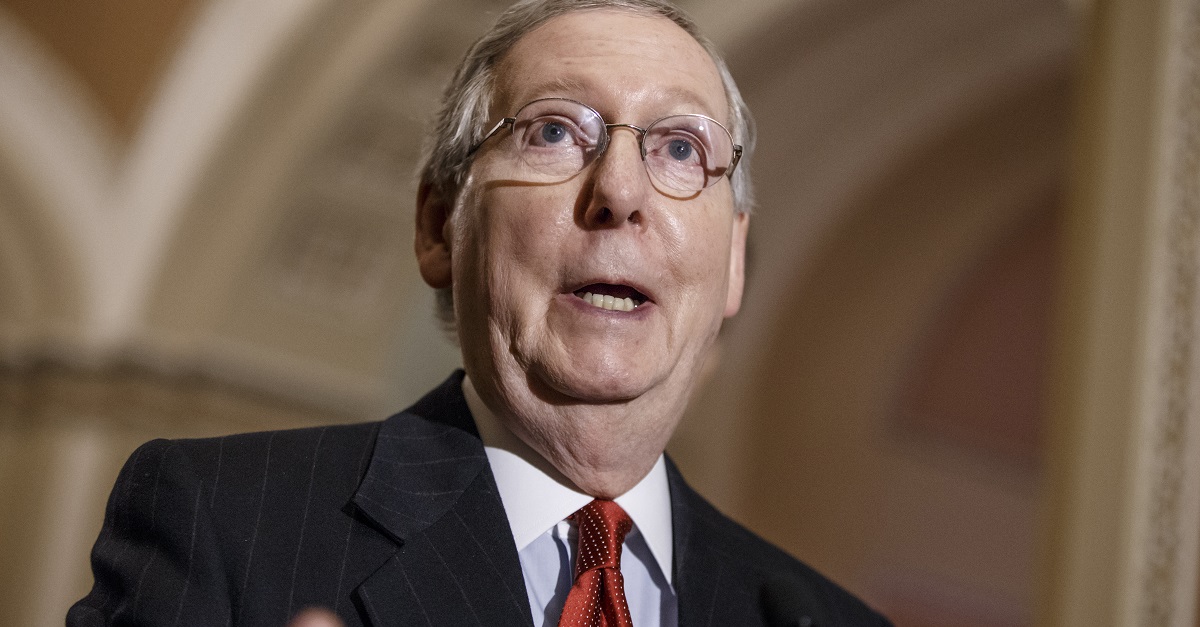“Giveaway,” “bailout,” “corporate welfare”— these are some of the most damning disparagements in the conservative lexicon. They were commonly applied to the 2008 TARP and auto company bailouts, and more recently, to last year’s attempts to inject funds into Obamacare’s so-called risk corridors. During a Republican presidential debate in 2016, Senator Marco Rubio boasted about fighting that particular “bailout fund.”
Videos by Rare
Except now, the recently crafted Republican Senate health care bill contains a big bailout of its own. Called the “stabilization fund,” it’s essentially a giveaway of $50 billion in taxpayer money over the next four years in order to prop up the failing Obamacare individual market exchanges, which are in the midst of a death spiral. The legislation specifically places the money under the singular charge of the administrator of the Center for Medicare and Medicaid Services, who is then given full authority to distribute it in order to “address coverage and access disruption and respond to urgent health care needs within States.”
Kathleen Sebelius wielding unilateral power, anyone?
The bill trumpets the stabilization fund as a “short-term” measure, though it’s not exactly clear what’s supposed to come after that. Why should the health exchanges be any more solvent four years from now than they are this year? The likely outcome is that this will become a permanent feature of the health care market, with the bailouts as just another line item. Conservatives who object that the program was supposed to sunset will be duly tarred as blackhearted granny killers. It will become, as Senator Rand Paul has warned, a new entitlement.
RELATED: In Britain, privacy rights are once again taking a backseat to security concerns
The rejoinder here is that it was Democrats, not the GOP, who created the shambolic exchanges; Republicans are just trying to broom up their mess. That’s certainly true so far as the blame game is played but remember, too, that the Republican bill also abolishes the individual mandate, which will make the exchanges even more imbalanced by taking away young customers’ incentive to sign up and leaving behind mostly the old and sick. The stabilization fund is intended not just to mitigate the existing damage but also the fresh hammer blows that will be dealt to the exchanges by Trumpcare. We’re replacing a mandate with a subsidy, in other words. Mitch McConnell has two shells on a table and he’s moving them around.
The stabilization fund prods at the heart of the problem with Trumpcare, which is that it’s not a full repeal of its forbear. The central framework of Obamacare has been left in place, with some of its pieces trimmed off and many more of them shifted. That may be the best that Republicans can get through the Senate (ironically, Senator Ron Johnson, one of the conservative dissent quartet, is among the most ardent advocates of a stabilization fund), but it’s hardly comforting if you’re trying to fix issues that originated with the Affordable Care Act.
Maybe this will be an improvement over current law, no matter how slight. But right now, the Republican bill looks more like mascara on a rotting cadaver.



